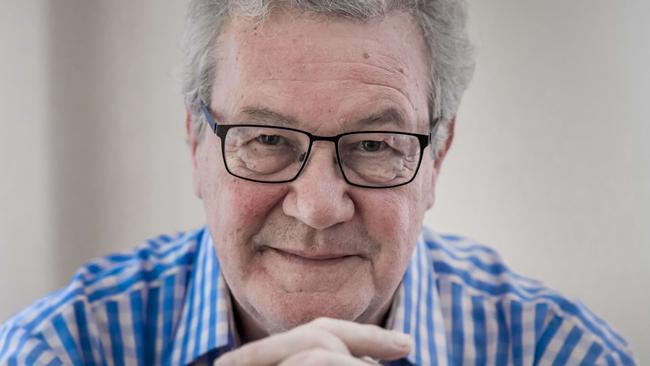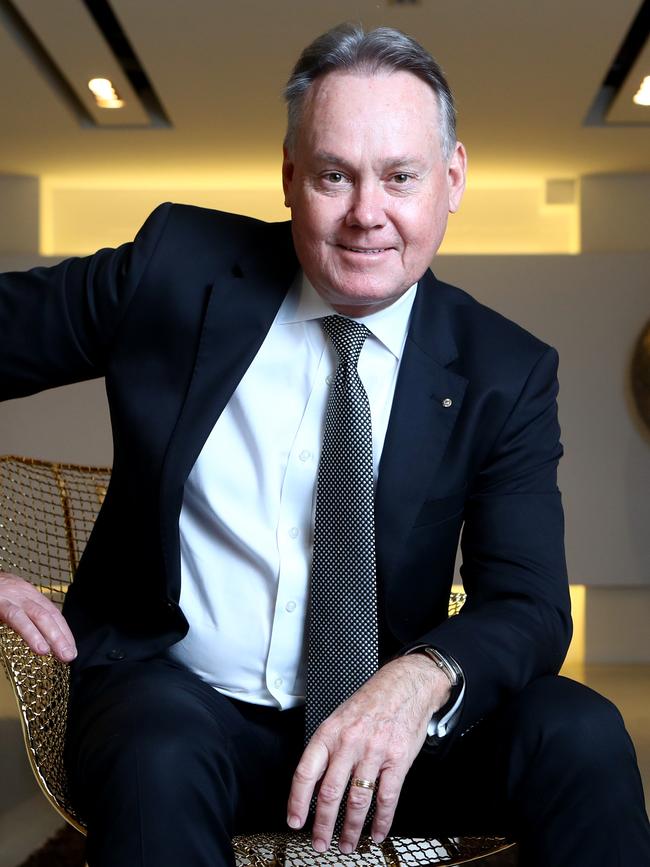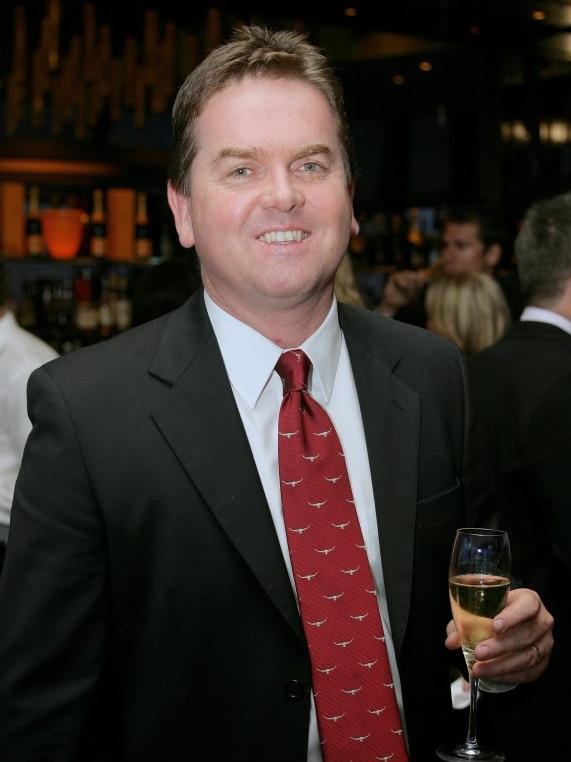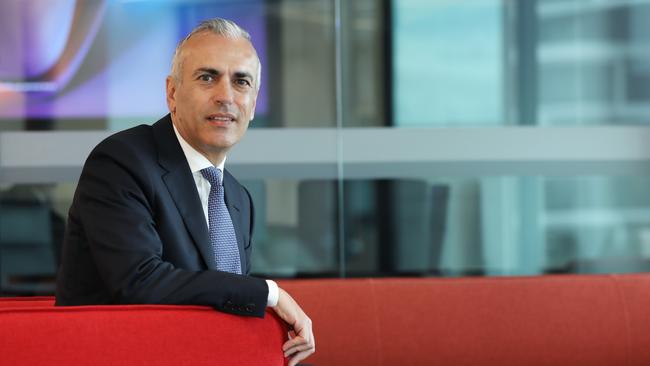
As Peter Costello kisses goodbye his public company directorships, his former cabinet colleague and one-time rival for the leadership of the Liberal Party, Alexander Downer, is playing an absolute blinder on the equity markets.
And not just the Australian sharemarket, but in London too, where at least two companies that Australia’s longest-serving foreign minister sits on the boards of are rewarding shareholders with huge stock price leaps and solid operational performances. Jealous much, Peter?
First there is Gold Hydrogen, a junior explorer with a market capitalisation of about $111m that listed on the ASX early last year and which is pursuing the discovery of world-class natural hydrogen and helium gases in a potentially huge section of South Australia.
Gold Hydrogen is chaired by Downer and its share price has rocketed 370 per cent in the past 12 months, helped by recent highly bullish exploration results at several of its sites, including the Ramsay Project, where it has hit on a find with world-class helium purity and at scale. Gold Hydrogen’s third-largest shareholder is investment house Washington H. Soul Pattinson, run by Rob Millner.

Then there is Yellow Cake Plc, listed on the London market and which gives investors a direct exposure to the uranium market through the company’s physical holdings of uranium oxide concentrate.
Yellow Cake counts Downer as a director, and its shares are up 40 per cent in the past 12 months and almost 200 per cent in the past five years.
Costello’s Nine Entertainment has witnessed a 30 per cent share price slide in the past 12 months.
The London-listed and Channel Islands-based Yellow Cake is riding the uranium boom, especially as many countries start to realise that the only way to hit net-zero carbon targets (Greens and ALP supporters please close your eyes here) is to turn to nuclear power.
Italy, the only G8 country without its own nuclear power plants, is now openly discussing a return to nuclear power and the construction of small modular reactors as a key stepping stone to the transition to renewables and hitting its net zero targets.
A big local backer of Downer’s Yellow Cake is listed investment company NGE Capital, led by David Lamm, with the uranium play its biggest holding in its $50m equities portfolio.
Yes, Downer has his misses too. The ASX-listed Ironbark Zinc, which is hoping to develop a zinc project in Greenland, has suffered a 60 per cent share price slide in the past year.
But with two big winners like Gold Hydrogen and Yellow Cake, Downer is still sporting that trademark mischievous grin. The famous Costello smirk, not so much these days.
Partridge’s sage advice
Lindsay Partridge, the long-serving boss of Brickworks, steps down in seven weeks, after 39 years at the company and leading it for 25 years.
Partridge is one of those “no nonsense” CEOs who gets on with the job. He also likes to call a spade “a bloody spade”.

Amid workplace behaviour scandals at companies such as Nine, Country Road, James Hardie, Cleanaway and plenty of others, Partridge had a simple philosophy he would speak of, namely his “no arseholes rule”.
It’s breathtakingly simple and doesn’t really require a bloated HR department and truckload of manuals on workplace guidelines.
Just don’t be an arsehole at work was the conversation Brickworks would have when hiring a new person. “Some respond, but most get fired,” Partridge would say.
How refreshing. Perhaps the ASX could put that in its listing requirements. Although the real problem is when one of your directors is the arsehole.
Not so vintage effort
It’s been more than a month since winemaker Australian Vintage showed its CEO Craig Garvin the door for conduct that in the board’s view “showed a lack of judgment”, but major shareholders are still in the dark about what allegedly is claimed to have happened.
The company’s collapsing share price, profit warnings and then after Garvin’s sudden exit the termination of merger talks with Accolade Wines has only served to anger its largest shareholders ever more.

Simon Mawhinney, managing director of funds manager Allan Gray, which has a 17.4 per cent stake in Australian Vintage and is its largest shareholder, along with major investor Oscar Oberg, lead portfolio manager of WAM Capital, are particularly displeased with the goings on at Australian Vintage. Actually “displeased” perhaps is understating the growing anger about the boardroom upheaval, shrinking share price and the failed talks with Accolade that was potentially the final hope for the winemaker to carry on.
The pressure is now on Australian Vintage chairman Richard Davis, with some large institutional investors wanting him out immediately, followed by the rest of the board. Australian Vintage, maker of McGuigan Wines, has had its shares suspended while it looks to raise capital and restructure its mounting pile of debt.
That suspension should lift any day now, and if there isn’t good news on a capital restructure shareholders should brace for another stock price nose dive.
Some shareholders question why the board didn’t lift the debt ceiling rather than opt for a destructive capital raising.
The Accolade deal was on the table, they argue, would have delivered scale and a portfolio of strong brands, but now the board has “snatched defeat from the jaws of victory”.
Australian Vintage shares are already down more than 90 per cent from their peak.
It has been a sad, slow demise for the once highly profitable winemaker that once boasted on its board former Macquarie Bank (now Macquarie Group) chairman and co-founder David Clarke, former Argo Investments chair Chris Harris, one-time NSW premier Nick Greiner, and veteran boardroom networker Ian Ferrier.
Baby Bunting creep
Slowly, slowly, catchy monkey. Merchant banker David Di Pilla’s HMC Capital is creeping up the share register of embattled infant and baby goods retailer Baby Bunting.
HMC, through its HMC Capital Partners funds, recently dipped back into the market to lift its stake in Baby Bunting to 12.31 per cent, from 10.29 per cent, making it the retailer’s second-biggest shareholder behind Australian Super (with 13.65 per cent).

Baby Bunting will hold an investor day at the end of the month led by recently appointed CEO Mark Teperson and which follows a shocking profit downgrade that resulted in the share price diving.
Baby Bunting’s largest shareholders are looking for a strategy reset and some ideas of how to rescue the retailer from its woeful underperformance despite it having a commanding market share and strong brand recognition.
There is a growing feeling that Baby Bunting has over-invested in its online platform and forgotten about its bricks-and-mortar retail operations. Its margins are also painfully weak.
The Baby Bunting share price has continued to slide over the past month with some suspecting a dilutive capital raising is on the cards.
Quadrant outage
Quadrant magazine, one of the last publications in Australia to argue the case for Western civilisation, freedom and liberty, suffered an website outage on Monday, alarming surely all its fans as well as the hacks at the ABC, The Guardian, The Saturday Paper etc who turn to the site to get fired up as they scribble their latest polemic.
Who was to blame for the website collapse? China, North Korea, some left-wing hackers or even perhaps eSafety Commissioner Julie Inman-Grant?
“Dear readers, apologies for the interruption to our normal service of newsletters and content,” wrote Quadrant managing editor Simon Kennedy.
“Our website is temporarily disabled due to some technical difficulties. I’d love to blame the eSafety Commissioner, but it is not her doing.”








To join the conversation, please log in. Don't have an account? Register
Join the conversation, you are commenting as Logout